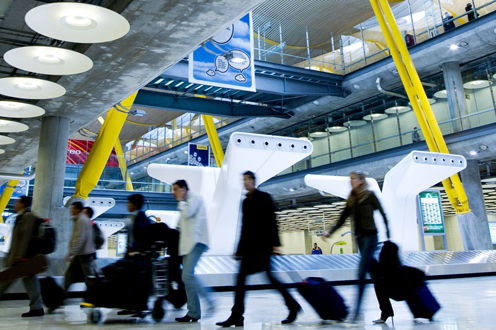Coronavirus COVID-19
Ministry of Foreign Affairs helps 18,000 tourists return to Spain in last two weeks
News - 2020.3.31
This amounts to an average of more than 1,000 tourists a day since the declaration of the state of emergency.
Although most of the operations were registered in Europe, the largest, most complex joint operations were in Latin America where some 20 flights coordinated by the Spanish embassies and consulates in the region have helped approximately 8,000 Spaniards return in the last few days. One of the largest operations was coordinated by the Spanish embassies and consulates in Guatemala, Honduras and El Salvador which, as well as helping 39 Guatemalans return to their country, assisted 400 Spaniards to return home.
The Spanish embassies and consulates in Argentina, Colombia, Cuba, Venezuela, Paraguay, Peru, the Dominican Republic and Ecuador have also helped coordinate various flights (mainly through Iberia to help some 6,000 Spaniards return home) or reached agreements with other countries to facilitate the departure, in some cases, of more than 1,000 people per country. By way of example, the return of 1,446 tourists was arranged from Ecuador, of whom 986 were Spanish and 462 of other nationalities, who arrived in Madrid in the last few days.
As regards the figures of Spaniards in the Asia Pacific region who wanted to come back to Spain, these numbers are gradually falling, and over 1,000 have got back since the state of emergency was decreed in Spain.
Of the 350 Spaniards in Indonesia that wished to return, the Spanish embassy has helped 240 get back (88 departed on flights under the European Civil Protection Mechanism organised by Lithuania, France and Germany; 85 through a cooperation programme with Qatar, and 60 received advice on international routes that are still open).
The figures are also high for the Philippines, where 357 Spanish tourists have been helped to return home. Given their dispersion among the islands and difficult communications within the country, there are still more than 3,000 Europeans trying to return to their countries, of which 272 are Spanish. However, a high number of these have opted to wait until the situation stabilises, some even signing rental contracts for a month.
Meanwhile, travellers continue arriving. On Monday, seven Spaniards flew out of Manila and Hanoi with a stopover in Vienna before arriving back in Spain, on an operation coordinated between the Spanish Embassies in Vietnam, the Philippines and Austria. Another four Spanish passengers, following the intervention of the Spanish Embassies in Peru and in Portugal, were able to get on a flight from Lima to Lisbon and then travel by road to Spain. Three Spaniards in Iceland were able to get back to Spain by getting on a plane chartered by the Icelandic authorities to travel to Spain to bring back some of their nationals. Another Spaniard caught a plane from Tallinn to Malaga, helped by the Spanish Embassy in Estonia. And the Spanish Consulates in Düsseldorf and Frankfurt helped two Spaniards in transit in the respective German airports, who had flown back from Latin America, to get on connecting flights to Spain.
The Ministry of Foreign Affairs, European Union and Cooperation still has some 4,500 public servants deployed through its network of 215 embassies and consular offices providing a permanent service to all those Spaniards who are trying to return home, proposing solutions to assist them in this goal as quickly as possible and under the best possible conditions.
Non official translation





